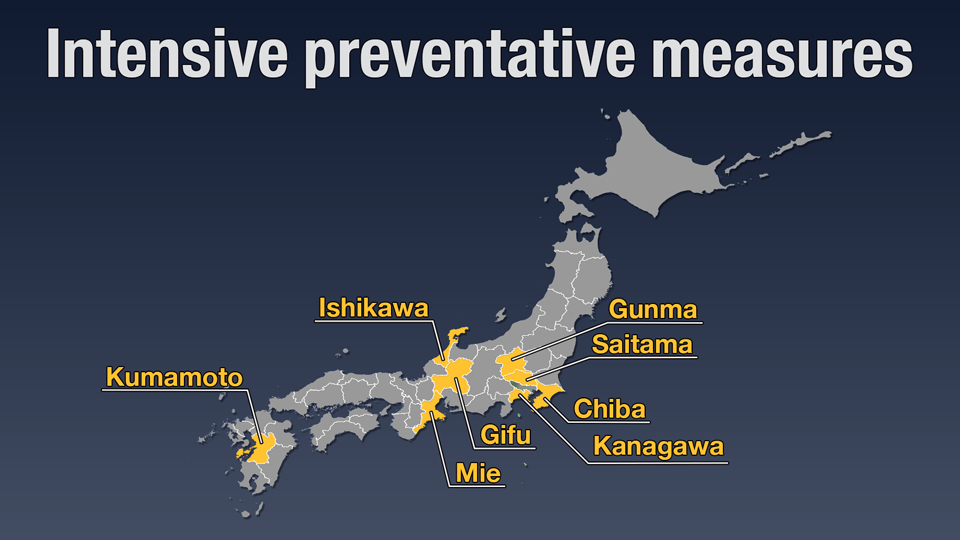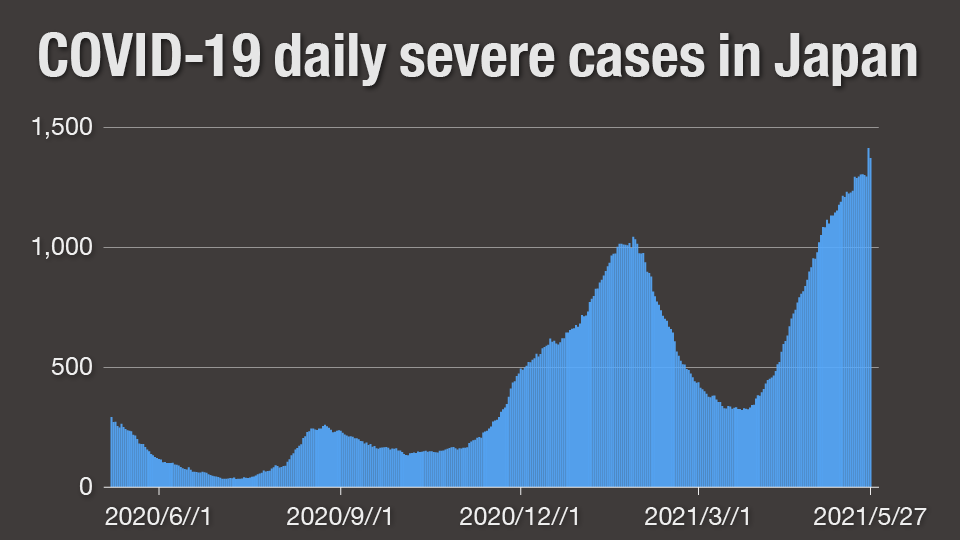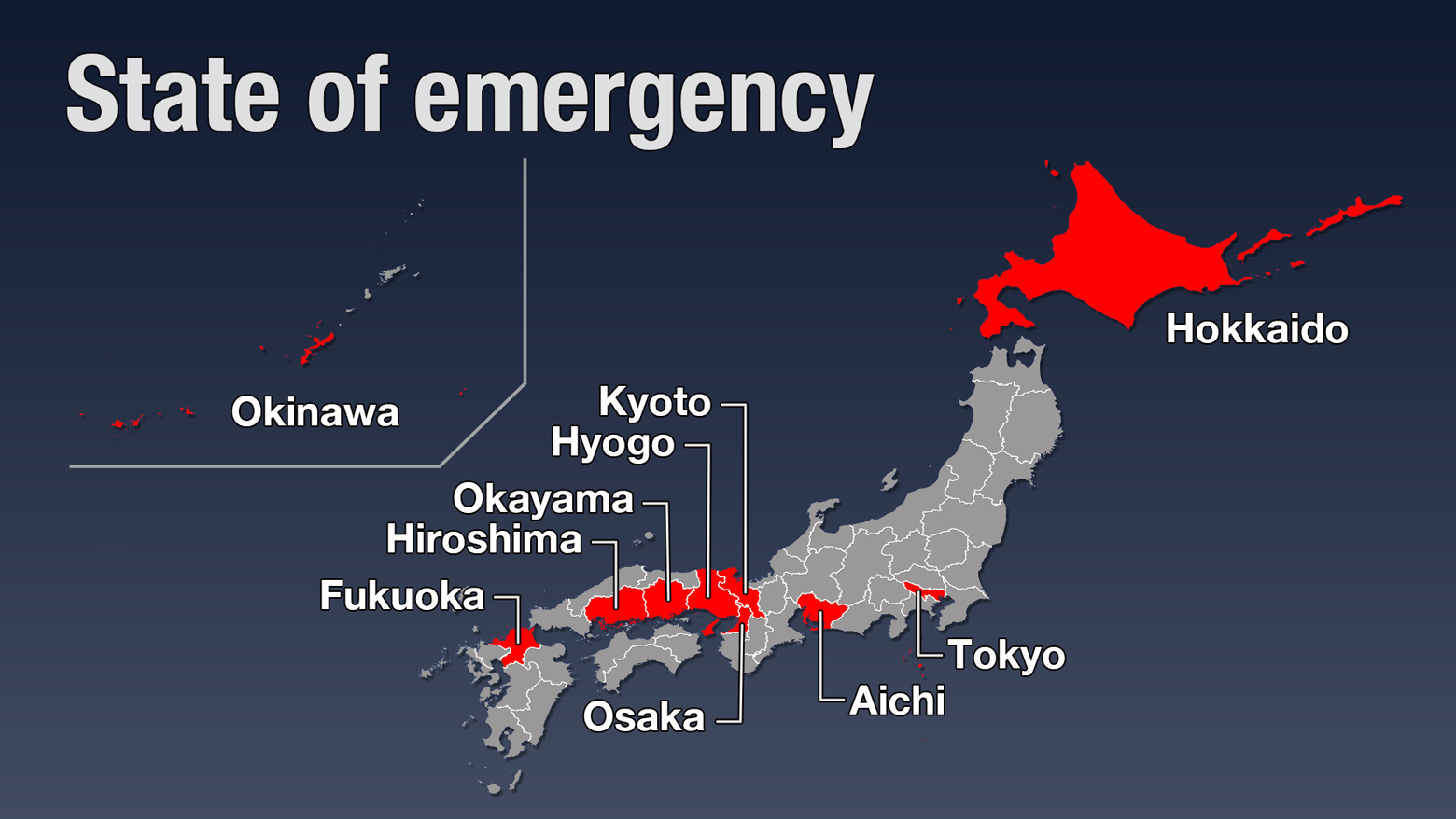It has been a month since the country's third coronavirus state of emergency was initially declared for Tokyo and three western prefectures. The measure was later expanded to cover nine prefectures, plus the capital, in total. It is currently due to expire at the end of May for all prefectures except Okinawa.
But coronavirus numbers nationwide remain troubling. Japan's health ministry says the number of severe cases hit a record high on Wednesday. It says 1,413 patients are on ventilators or being treated at intensive care units.

Most prefectural governments say it is too early to lift the state of emergency. At an online meeting on Wednesday, the governors of Tokyo and three surrounding prefectures asked the central government to extend the state of emergency for the capital and maintain intensive virus-prevention measures for the prefectures.
"There are concerns that we could see a rapid resurgence of infections if the state of emergency and the measures are lifted," said Tokyo Governor Koike Yuriko. "Tokyo and the three prefectures will work together to contain infections."
The metropolitan government reported 743 new cases of the coronavirus in the capital on Wednesday. That is 23 fewer than a week ago, and marks the 13th straight day of week-on-week declines.
Experts advising the Tokyo government say the current measures must be extended, citing the risks posed by variants combined with an increased flow of people.

Alert for variant from India
Experts are expressing concern about the variant that has been spreading in India. It had been detected in 29 people in Japan as of May 24, according to the Health Ministry. Six days earlier, the figure was just eight.
The Tokyo Medical and Dental University Hospital screened 37 patients for the India variant from May 6 to 24. One tested positive. That patient says they have never travelled overseas.
Associate Professor Takeuchi Hiroaki says it is highly likely that the patient contracted the virus through community spread and that there are others with it in the vicinity.
Professor Nishiura Hiroshi, an infectious disease expert at Kyoto University, says Tokyo has avoided a surge in infections, but the rate has not declined under the state of emergency. "If we consider the impact of the variant first detected in India, it will be difficult to control infections with the present measures," he says.
Prime Minister Suga Yoshihide said on Monday that the government will listen to expert opinions and review the infection situation before making a decision at the end of this week.

